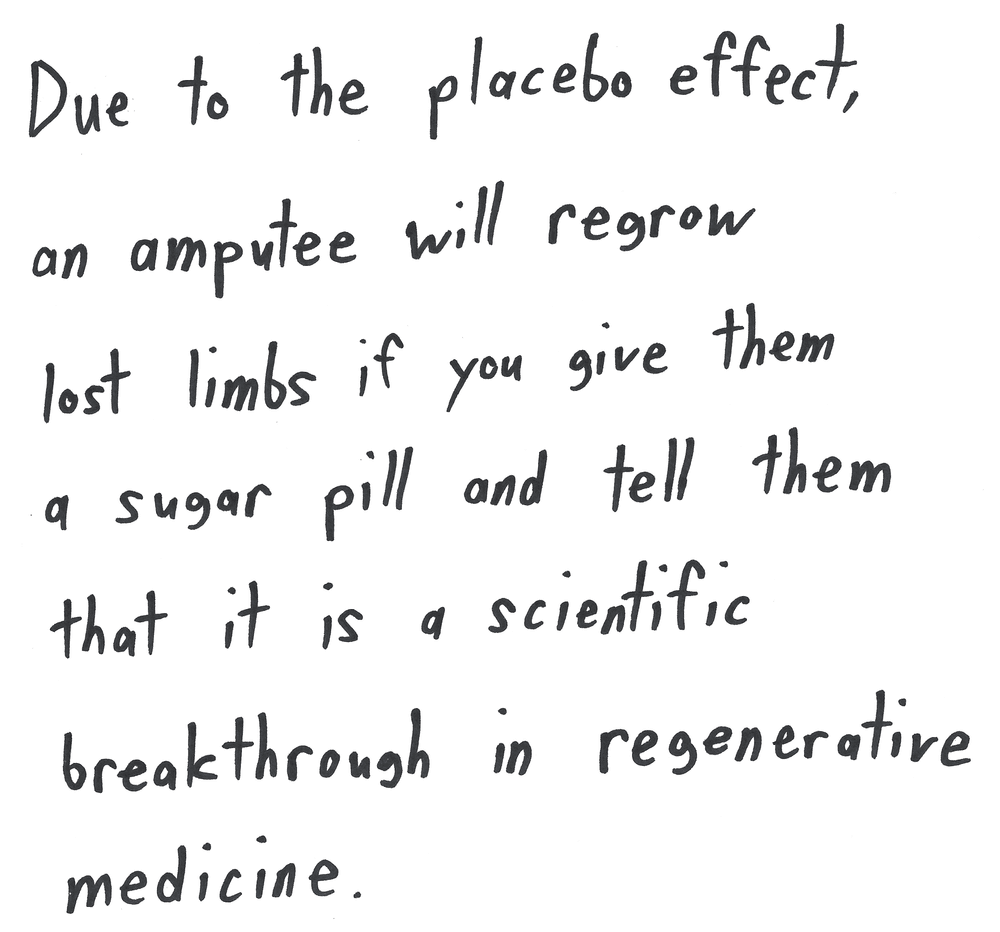this post was submitted on 02 Feb 2024
15 points (100.0% liked)
tails: A Place for Mastodon Posts
108 readers
1 users here now
A virtual community
Posts from Mastodon users, featured natively in a community, so you can view them without the need for them to be re-hosted or screenshoted, and reply to the original author and Mastodon respondents if you wish.
Has so far included content from Warsandpeas, Mr. Lovenstein, SMBC, Loading Artist, Low Quality Facts, nixCraft, ElleGray, and other interesting or provocative stuff I've random'd across on Mastodon.
Supported:
Comments & Upvotes
Unsupported:
Posts, Downvotes, & PD's Automod
founded 11 months ago
MODERATORS
you are viewing a single comment's thread
view the rest of the comments
view the rest of the comments

The placebo effect is often an issue with measurement or subjective quality of measurements.
If you ask someone how much pain they are in that's subjective. So you can't reliably collect data on something like that. If I give you a pill and ask you how much pain your in your likely to say less than before. Because of the expectations that the pill did something.
We null the effect by using a group of people that don't know they aren't receiving the medication. This gives a level of unreliability in the measurements that can be used to gauge if the tested medication has any effect.
Placebos don't do anything. The placebo effect is the measure of no effect. In the UK it is illegal to prescribe a placebo. However, doctors will recommend cough syrup and acupuncture. This gets people out the door feeling like the got something out of the interaction when theres no medical intervention necessary.